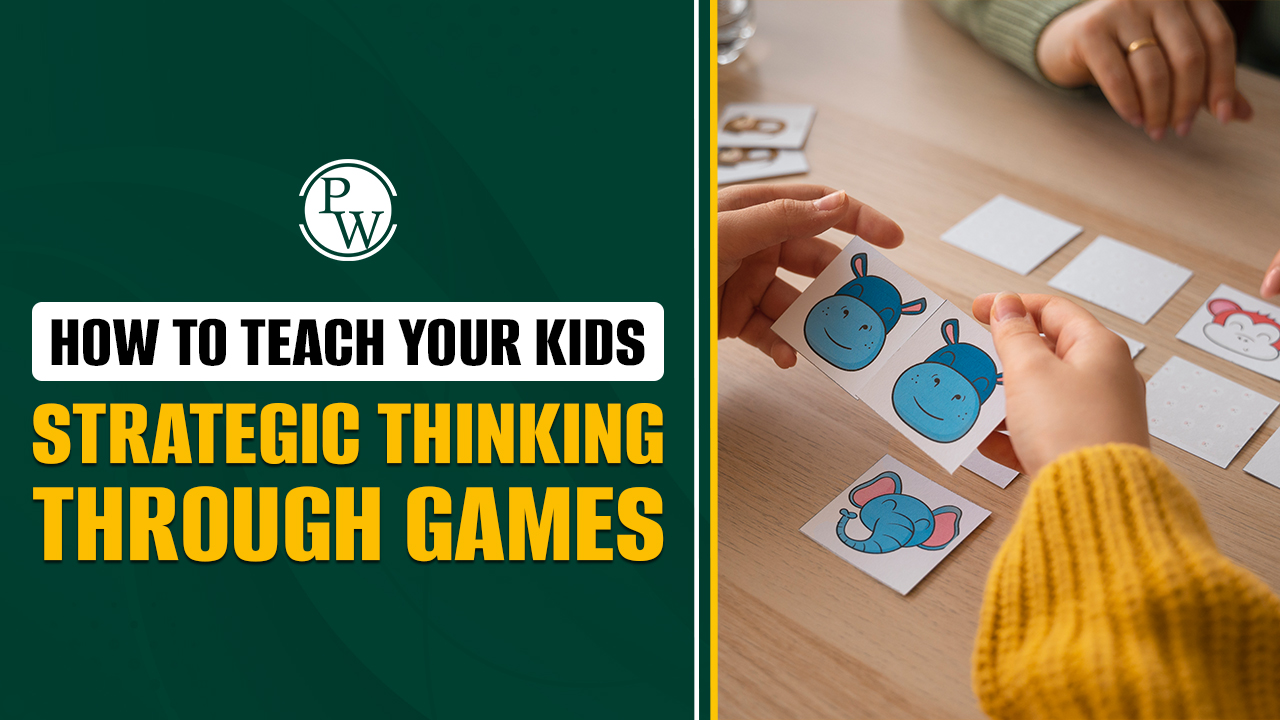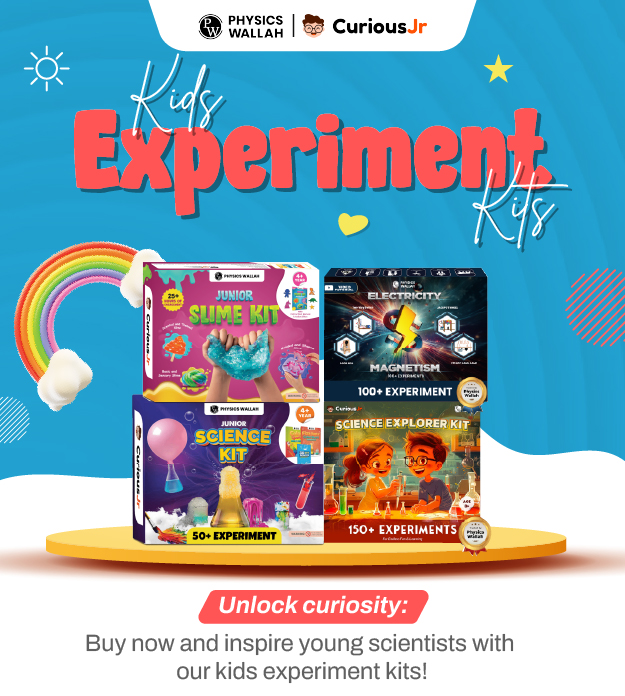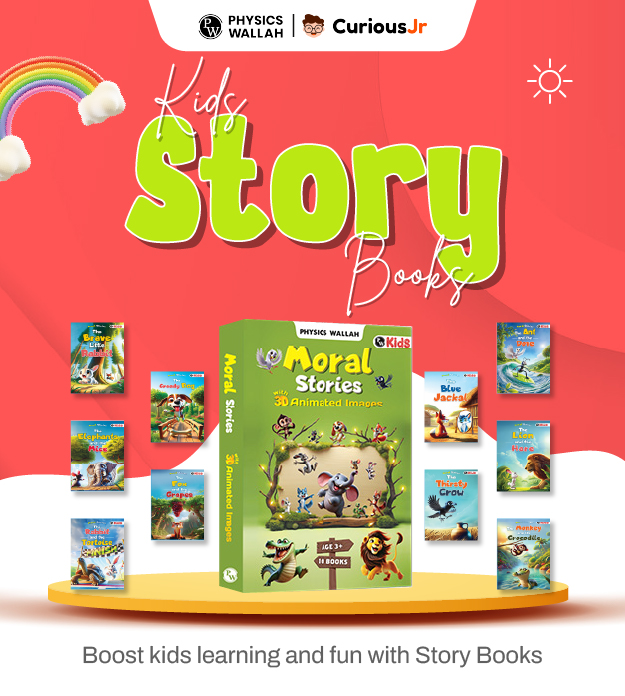How to Teach Your Kids Strategic Thinking Through Games

How to Teach Your Kids Strategic Thinking Through Games:- Strategy games for kids are a brilliant way to combine fun and learning, offering children the opportunity to develop critical thinking and problem-solving skills while spending quality time with family and friends. While traditional education often centres on reading, writing, and maths, strategic thinking is sometimes overlooked. However, playing strategy games can significantly enhance a child’s learning, particularly in areas like maths. Maths strategy games for kids, for instance, not only boost arithmetic skills but also encourage logical reasoning and planning.
So, are strategy games good for kids? Without a doubt! They teach children to think ahead, analyse outcomes, and understand cause-and-effect relationships—skills that are invaluable both in the classroom and in real-life situations. From traditional strategy board games to space-based strategy games, each variety offers its own set of challenges that keep children engaged while fostering essential cognitive development. By incorporating these games into their routine, children can build a mindset that encourages foresight, creativity, and critical thinking—skills they will benefit from throughout their lives.
Check out: Activity Kits
What is Strategic Thinking and Why is it Important?
Strategic thinking refers to the ability to analyse situations, anticipate future challenges, and plan actions that will lead to desired outcomes. It involves looking at the big picture, identifying opportunities, and considering the long-term implications of decisions. Strategic thinkers evaluate different scenarios, consider various outcomes, and make informed choices to reach a goal. This type of thinking is essential for both personal growth and success in professional settings.
1. Problem Solving and Decision Making:- Strategic thinking helps individuals approach problems with a clear understanding of the issue at hand.
2. Long-Term Success:- People who think strategically are focused on achieving long-term goals rather than short-term rewards.
3. Adaptability:- A strategic thinker can quickly adapt to changing circumstances.
4. Resource Management:- Strategic thinking involves efficiently managing resources, whether it’s time, money, or effort.
5. Increased Innovation and Creativity:- Since strategic thinking encourages individuals to look beyond the present and imagine possible future scenarios, it often leads to more innovative ideas and creative solutions.
Check, strategy games for your kids.
How to Teach Your Kids Strategic Thinking Through Games
Teaching your kids strategic thinking through games is an enjoyable and effective way to help them develop essential cognitive skills. Strategy games for kids offer a fun opportunity to engage in activities that promote problem-solving, foresight, and logical reasoning. Here’s how you can teach strategic thinking through a variety of games:
1. Choose the Right Games
Start with age-appropriate strategy games for kids that match their developmental stage. Younger children can begin with simpler strategy board games like Connect Four or Checkers, which help them learn basic planning and prediction skills.
As they grow, introduce more complex games such as Tumbling Tower, Chess, Catan, or Risk, which involve deeper strategies and decision-making processes. For those interested in maths, maths strategy games for kids, such as Maths Mingle Board, Sum Swamp or Math Dice, integrate problem-solving with arithmetic, making learning both fun and educational.
2. Encourage Thinking Ahead
Strategic thinking involves considering not just the immediate results but the longer-term consequences. While playing, encourage your child to think a few steps ahead. Ask them, “What do you think will happen if you move there?” or “What could your opponent do next?” This helps them understand the importance of foresight and planning ahead, which is a valuable skill in both strategy games and academic subjects like maths and science.
3. Discuss Consequences
Every decision made in a strategy game comes with consequences. After each turn, reflect with your child on the decision: Was it a good move? Why or why not? This analysis encourages critical thinking and helps them understand cause-and-effect relationships, an important aspect of strategic thinking. It also allows them to learn from mistakes, an essential part of growth in both games and life.
4. Promote Problem-Solving
Strategy games often present challenges that require creative problem-solving. Encourage your child to consider various approaches to solve the game’s puzzles. For example, in Math Dice, they can practice addition and subtraction while also thinking strategically about how to score the highest.
In Space-based strategy games like Space-Bingo, Twilight Imperium, children can learn about resource management and tactical planning in a fun, sci-fi setting, helping them develop a well-rounded strategic mindset.
5. Introduce Team-Based Strategy Games
Team-based strategy games like Pandemic or Forbidden Island can teach kids the importance of collaboration in problem-solving. These games require players to work together to achieve a common goal, encouraging communication, compromise, and shared decision-making. Working as a team also helps kids realise that strategic thinking can be a collective effort, which is an important life skill.
6. Encourage Reflection
After the game, take time to reflect on the strategies used during play. Ask your child, “What strategies worked well?” or “What would you do differently next time?” This encourages your child to think critically about their decisions and helps them refine their approach to problem-solving. Reflecting after each game is key to developing a strategic mindset.
7. Set Challenges
To make the game more engaging, you can set specific strategic challenges for your child, like focusing on resource management in Catan or trying to control key areas of the board in Risk. Setting these goals will help them learn the importance of staying focused on their strategy and adapting their plan based on the game’s progression.
8. Keep it Fun
The most important part of teaching strategic thinking through games is to keep it enjoyable. While learning is key, the fun aspect of playing games will keep your child motivated and excited to think strategically. Celebrate good moves and clever strategies to reinforce positive behaviour and make learning feel rewarding.
Also check: Counting Wizard Educational Math Kit
7 Strategy Games for Kids
Strategy games for kids are not only fun but also powerful tools for developing critical thinking, problem-solving, and decision-making skills. These games encourage children to think ahead, plan their moves, and analyse consequences, all while having fun with family and friends. Here are 10 ways to teach your kids strategic thinking through games, with a focus on math strategy games for kids, strategy board games, and even space-based strategy games:
1. Board Games with Complex Rules
Games like Chess, Risk, and Settlers of Catan encourage kids to think ahead, anticipate opponents' moves, and weigh consequences. These games provide opportunities for kids to develop planning and foresight while also teaching the importance of adapting strategies.
2. Card Games
Games like Uno, Go Fish, and Poker can help kids understand probability, risk management, and the importance of adjusting strategies based on changing circumstances. These games also teach them to be flexible and think on their feet.
3. Puzzle Games
Engage kids with puzzles like Sudoku, Tangrams, or Jigsaw puzzles. These games help children practice spatial awareness, pattern recognition, and strategic problem-solving by analyzing how parts fit together in the larger picture.
4. Simulations and Role-Playing Games (RPGs)
Games like Monopoly, The Game of Life, and digital RPGs allow kids to explore different roles and scenarios, requiring them to make decisions that have long-term effects. These games improve planning, resource management, and understanding consequences.
5. Memory Games
Simple memory games such as Memory Match or Simon improve focus, attention, and recall, all of which are critical components of strategic thinking. As kids try to remember the location of cards or patterns, they also learn to think ahead about their choices.
6. Competitive Team Games
Team-based games like Capture the Flag, Kickball, or Soccer encourage children to collaborate, communicate, and strategize with teammates. They learn to identify strengths and weaknesses and make decisions that impact the team's success.
7. Treasure Hunts and Scavenger Hunts
Organize a treasure hunt or scavenger hunt where children need to use clues, solve puzzles, and plan their next moves. These activities encourage strategic thinking by requiring kids to process information and figure out how to achieve a goal efficiently.
Check Out; Family Tree Kit for Kids
How to Teach Your Kids Strategic Thinking Through Games FAQs
1. Why are strategy games good for kids?
Strategy games help kids develop essential cognitive skills such as problem-solving, critical thinking, and decision-making. These games encourage kids to plan ahead, analyse consequences, and adapt to changing situations, all of which are valuable life skills.
2. What types of strategy games are good for kids?
The good strategy games for kids are those that match their age and developmental stage. For younger children, simple games like Checkers or Connect Four are perfect. As they grow older, you can introduce more complex strategy board games like Catan or Chess, and even space-based strategy games such as Twilight Imperium for older kids.
3. How do strategy games improve math skills?
Math strategy games for kids, such as Math Dice or Sum Swamp, incorporate basic math concepts like addition, subtraction, and multiplication. These games require kids to use their math skills to plan their moves, helping them reinforce arithmetic in a fun and interactive way.
4. At what age should kids start playing strategy games?
Children as young as 4 or 5 can start with simple strategy board games like Candy Land or Checkers. As they grow older and their problem-solving skills develop, they can gradually move on to more complex games like Risk or Catan.
5. How can I teach my child to think strategically during a game?
Encourage your child to think several steps ahead, ask them open-ended questions, and help them analyse the outcomes of their decisions. For example, ask, "What do you think will happen if you move there?" or "How could your opponent counter your move?" This will help them understand the importance of foresight in decision-making.










